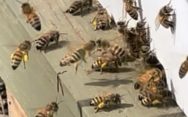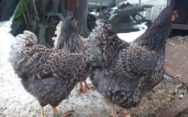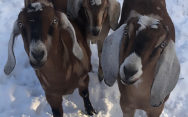Thyroid Testing

Hypothyroidism is the most common endocrine disorder of canines.
At least 80% of cases result from autoimmune thyroiditis. The heritable nature of this disorder poses significant genetic implication for breeding stock. Thus accurate diagnosis of the early stages of canine autoimmune thyroiditis leading up to hypothyroidism provides important genetic and clinical options for prompt intervention and case management.
Puppies tend to have higher basal thyroid levels than adults, and geriatrics tend to have lower basal thyroid level than adults. Dogs fed gullet or throat portion of raw red meat may have iatrogenic hyperthyroidism due to the excess amount of thyroid hormone not only in the meat source, but also in the juices from the meat. Removing the meat from the diet resolves the hyperthyroidism in about 4-6 weeks and basal levels return to normal. Feeding excessive amounts of iodine in foods and supplements (kelp, seaweed) reduces the thyroid function. This contributes to the rising prevalence of hypothyroidism in young dogs. Iodine also increases auto-antigenic potency of thyroglobulin leading to induction of autoimmune thyroiditis.
It is recommended that dogs be tested after 10-14 months of age in males and during the first anestrous period for females following their maiden heat. Testing annually is recommended for the first four years. After that, testing every other year is recommended. The registry data can be used by breeders in determining which dogs are best for their breeding program. Knowing the status of the dog and the status of the dog’s lineage, breeders and genetic counselors can decide which matings are the most appropriate for reducing the incidence of autoimmune thyroiditis in the offspring.
A bitch with circulating thyroid autoantibodies has the potential to pass these along to the puppies transplacentally as well as via the colostrum. Furthermore, any dog having thyroid autoantibodies may eventually develop clinical symptoms of thyroid disease and/or become susceptible to other autoimmune diseases. Thyroid screening is thus very important for selecting potential breeding stock. Individuals genetically susceptible to autoimmune thyroid disease may also be more susceptible to immune-mediated diseases affecting other target tissues and organs, especially the bone marrow, liver, adrenal glands, pancreas, skin, kidney, joints, bowel and CNS. The resulting “polyglandular autoimmune syndrome” of humans is becoming more commonly recognized in the dog. The syndrome tends to run in families and is believed to have an inherited basis. This multiple endocrnopathy often occurs in patients with underlying autoimmune thyroid disease and concurrent Addison’s disease, diabetes, reproductive failure, skin disease and alopecia, and malabsorption syndrome. The most common non endocrinologic autoimmune disorders associated with this syndrome are autoimmune hemolytic anemia (AIHA), idiopathic thrombocytopenic purpura (ITP), chronic active hepatitis, and immune –complex glomerulonenphritis (Systemic lupus erythematosus – SLE). The Nova Scotia Duck Tolling Retriever is listed as one of the breeds genetically predisposed to thyroiditis and Addison’s disease.
Aberrant behavior starting around the time of puberty or as young adults has also been associated with thyroid dysfunction. Signs and symptoms include unprovoked aggression, sudden onset of seizure disorder, moodiness, periods of hyperactivity, hypo attentiveness, fearfulness and phobias, anxiety, and submissiveness.
The presence of elevated TgAA, T3 and/or T4AA confirms the diagnosis of autoimmune thyroiditis. Affected dogs should not be used for breeding.
The Orthopedic Foundation for Animals provides certification for dogs that are tested for evidence of Hypothyroidism.
OFA will only accept results from approved labs.
This form completed by your veterinarian must accompany all blood samples submitted to the approved lab for OFA Thyroid Panel tests.
For more information and further details on these facts, please refer to this article by Dr. Jean Dodds of Hemopet.





